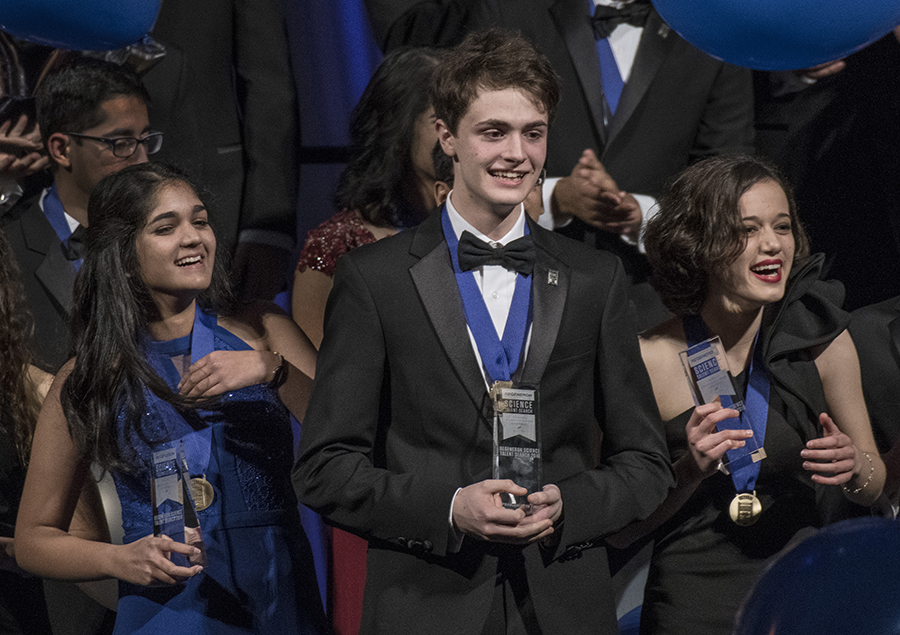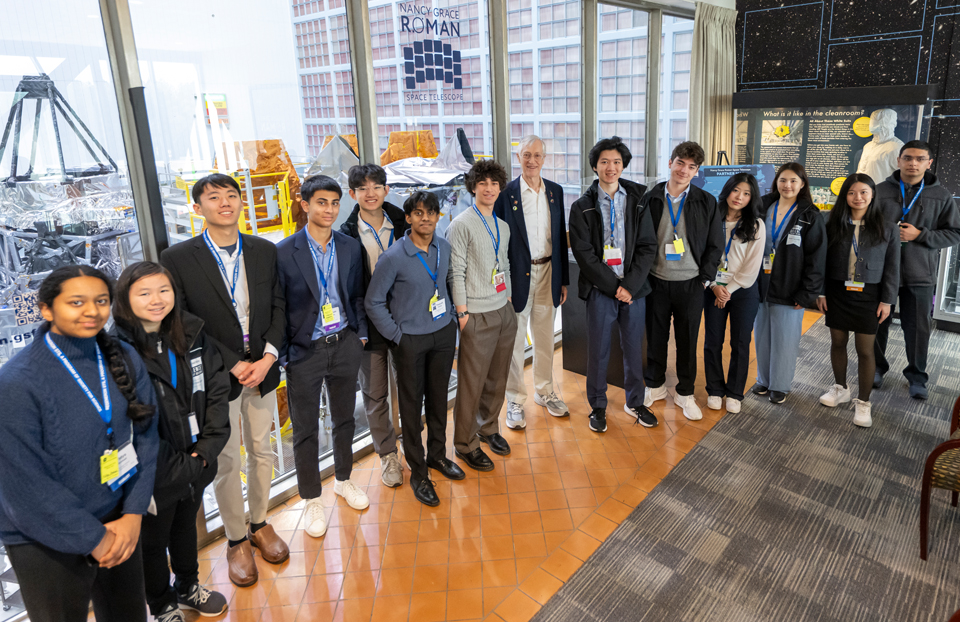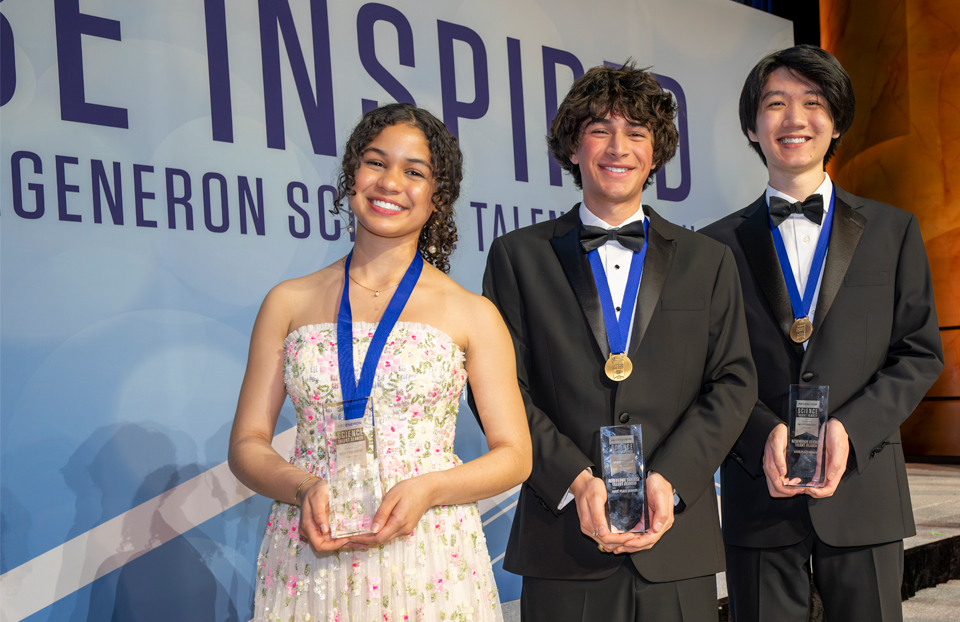Teen scientists win $1.8 million at Regeneron Science Talent Search 2018

Benjamin “Benjy” Firester, 18, of New York City, won the top award in the Regeneron Science Talent Search 2018, the nation’s oldest and most prestigious science and math competition for high school seniors. Forty finalists, including Benjy, were honored tonight at the annual Regeneron Science Talent Search awards gala, which was keynoted by renowned author Malcolm Gladwell. Regeneron provided awards of more than $1.8 million for the finalists, who were evaluated for their research projects, as well as their exceptional scientific and mathematical knowledge and abilities.
Benjy won first place and $250,000 for his development of a mathematical model that uses disease data to predict how weather patterns could spread spores of the late blight fungus, which caused the Irish Potato Famine and still causes billions of dollars in crop damages annually. Benjy’s program uses existing blight locations, date, time and detailed local weather data to model the likely routes by which late blight will spread and predict likely future infection sites. Farmers might someday use shared data to assess blight risk and reduce the preemptive use of fungicide.
Second place and $175,000 went to Natalia Orlovsky, 18, of Chadds Ford, Pennsylvania, for her examination of the response of lung epithelial cells to fluids used in vaping, a practice promoted as a safer alternative to smoking cigarettes. While exposure to e-cigarette vapors did not change a lung cell’s DNA, as does cigarette smoke, Natalia found that fluids of varying flavors and nicotine content did produce a potent stress response associated with decreased cell viability. Her results may demonstrate a need for greater scrutiny of the composition of vaping fluids.
Third place and $150,000 went to Isani Singh, 18, of Aurora, Colorado, for her work towards determining that women with Turner Syndrome (TS), a genetic abnormality in which the second sex chromosome is missing, do have some cells with two X chromosomes. Knowing that most embryos lacking the second X do not survive, Isani adapted a laboratory protocol to search for and find these normal cells in TS embryos. She also identified genes that are under expressed in TS, a finding that may help physicians and patients better prepare for the variable medical complications of TS.
“Congratulations to this year’s Regeneron Science Talent Search top winners,” said Maya Ajmera, President and CEO of Society for Science & the Public and Publisher of Science News. “I am in awe of the finalists’ passion, creativity and commitment to scientific ingenuity. The incredible history of accomplishments by past winners suggests this year’s winners will become tomorrow’s scientific leaders.”
“The Regeneron Science Talent Search competitors are some of our country’s very best young scientists,” said George D. Yancopoulos, M.D., Ph.D., Founding Scientist, President and Chief Scientific Officer of Regeneron, and a Science Talent Search winner himself in 1976. “We’re so excited to support the winners for their remarkable accomplishments, and are thrilled to see once again the amazing thinking that comes from a group of passionate, skilled young people bringing fresh perspectives to significant global problems. Being a winner in what was then the Westinghouse Science Talent Search changed my life, and inspired me to devote my life to science. We hope the same for this year’s competitors, and that people of all ages will look to them as role models and be similarly inspired to change the world through science.”
These students join the ranks of other Science Talent Search alumni who have gone on to receive more than 100 of the world’s most esteemed science and math honors, including the Nobel Prize and the National Medal of Science, to start successful biotechnology and technology companies, and to change the world through their myriad inventions.


